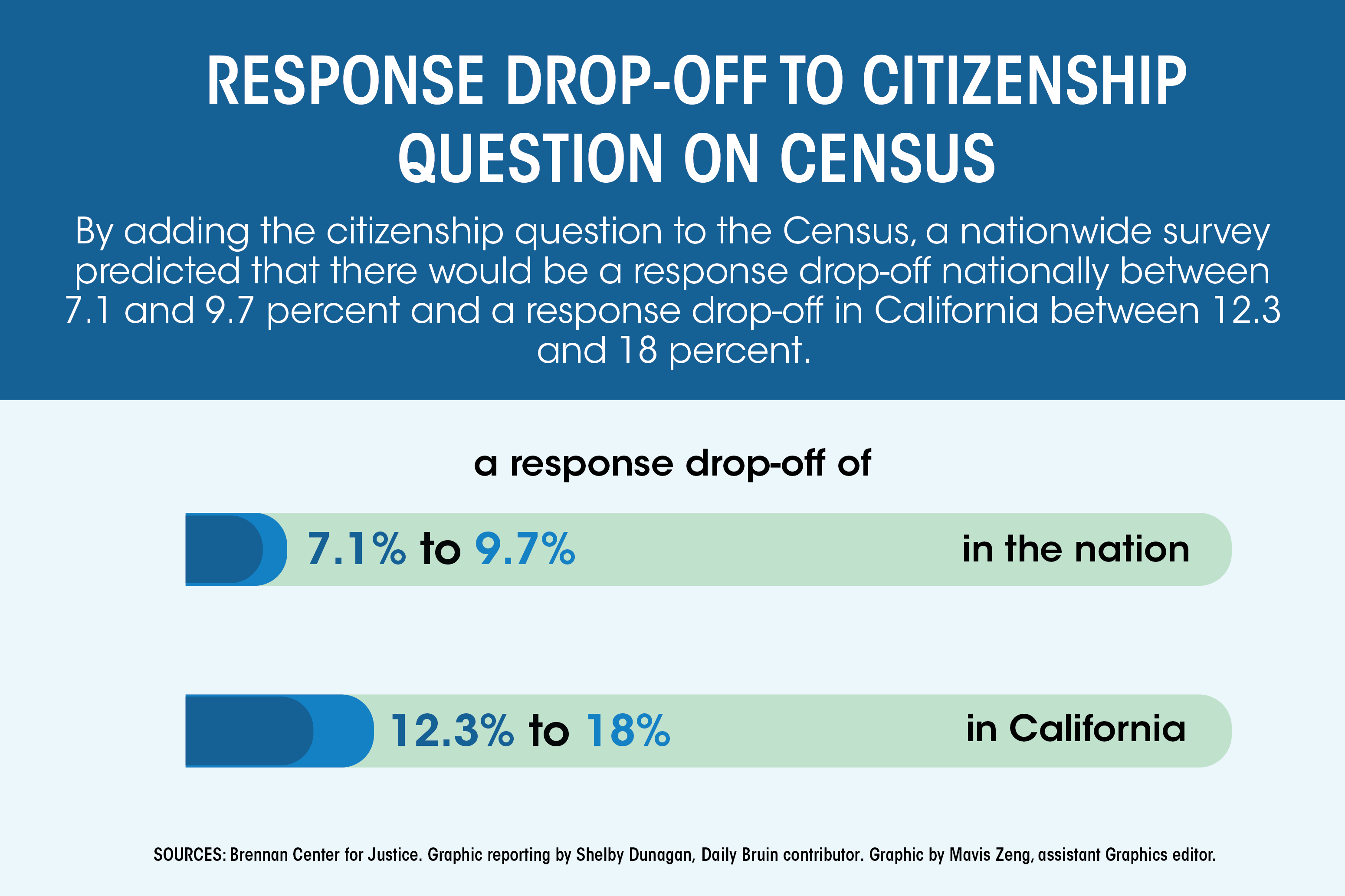New Census question could result in significant population undercount

By Shelby Dunagan
Feb. 7, 2019 11:54 p.m.
A question surveying citizenship status on the United States Census could cause a large undercount of the population, resulting in a misallocation of money and representation to various states, according to a testimony by a UCLA professor.
President Donald Trump’s administration announced plans to add a question surveying respondents’ citizenship status to the national census in March, which prompted California to file suit against the administration for the proposed change later that month.
Matthew Barreto, a Chicana and Chicano studies and political science professor and expert witness for California in the court case, said in court documents that fewer people would respond to the next census if a citizenship question were to be added, resulting in a severe undercount of the population.
The U.S. conducts an official census of all residents in the country every 10 years. It is used to determine allocation of funds and district boundaries for states.
Barreto conducted a nationwide survey, gathering information on the impact of including a citizenship question. The study found that response rates to the Census would decline between 7.1 and 9.7 percent nationally and between 12.3 and 18 percent in California, meaning 6.3 to 9 million people are estimated to be excluded from the count if the citizenship question is added, according to trial documents.
The survey asked people whether they would participate in a census that asked them about their citizenship and whether they would participate in one that did not.
Barreto, who was unable to speak directly to the Daily Bruin due to his affiliation with ongoing litigation, said in his testimony California would see the biggest decrease in response rates because the state has the largest immigrant and Latino populations in the country.
Surveyed immigrant and minority communities, according to findings in Barreto’s study, were wary of the federal government and what it would do with their private information. The survey found that 35 percent of immigrant respondents were less likely to trust that the Trump administration would protect their information and not share it with other federal agencies.
Immigrants may not be receptive to the citizenship question given the current political climate, Barreto said in his testimony.
The survey also found in California that trust in the Trump administration was even lower with 48 percent of respondents saying they think the administration will share their information with other federal agencies.
Maria Lopez, a third-year sociology student, said the addition of the citizenship question worries her as an undocumented student in the current political climate.
“The census itself even without that question is already something that people will be inclined not to fill out,” Lopez said. “Because it is giving the government a lot of your personal information.”
Raúl Hinojosa-Ojeda, a Chicana and Chicano studies professor, said he thinks the citizenship question would undermine the intent of the Census, which relies on accurate counts of the population for distributing political representation and resources.
“The Constitution calls for the enumeration of those who have residences in the United States; that is the purpose of the census,” Hinojosa-Ojeda said. “That is why the citizenship question has been historically left out of it because those who are intimidated by this will affect response rates and population count.”
Lopez said she thinks citizenship status does not fully reflect an individual’s national identity.
“I feel like just because you are born here doesn’t make you any more of a citizen than someone who was raised in America. There is a difference between being born here and being willing to contribute,” Lopez said. “Being undocumented, I never felt like I wasn’t a citizen.”
The California trial started Jan. 7 and is ongoing.

